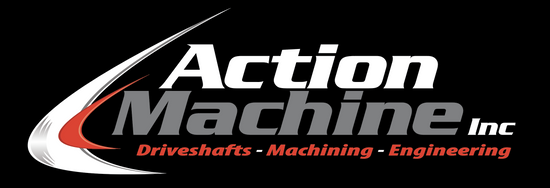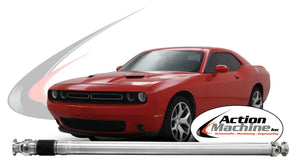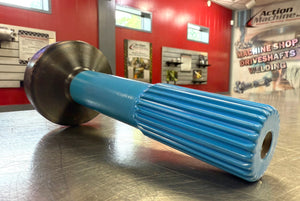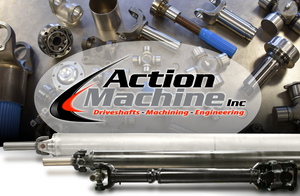Aluminum vs. Steel Driveshafts: Which is right for your application?
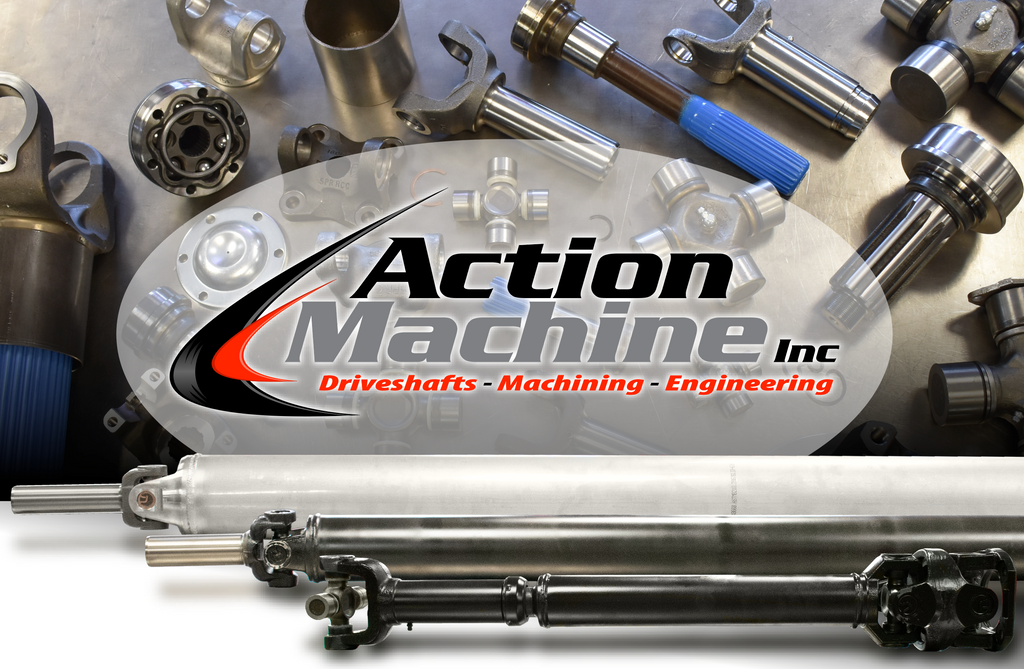
Choosing the right driveshaft material comes down to application, performance goals, and budget. At Action Machine, we build both aluminum and steel driveshafts and help customers select the right option based on length, torque, weight, and critical speed. Both materials offer unique strengths, and the best choice depends on how, and where, the driveshaft will be used.


Torque Capacity and Strength
When comparing similar wall thicknesses, aluminum offers impressive torque capacity at a lower weight. For example, a 0.125" wall aluminum tube can handle more torque than a 0.083" wall steel tube, while weighing less. That makes it a strong option for performance applications where weight savings and strength are both important.
That said, steel driveshafts are incredibly versatile and well-proven in a wide range of vehicles, from daily drivers to 500–700 horsepower street and race builds. Heavier wall steel tubing is much more readily available (especially above 0.125"), making it the go-to choice for off-road, rock crawling, construction, and other high-load applications where durability and stiffness matter most.
Driveshaft Length and Diameter
Aluminum also performs well in longer one-piece applications. With 4" and 5" diameter tubing, we can build longer aluminum driveshafts than steel before hitting critical length thresholds. This can allow you to eliminate carrier bearings and reduce complexity in vehicles.
Critical Speed and Performance
Aluminum driveshafts have a higher critical speed, the point at which the shaft begins to flex and vibrate due to rotational forces. Exceeding this speed can cause the shaft to enter a “jump rope” effect and fail in the center. The higher critical speed of aluminum makes it ideal for high-RPM use or long-shaft builds where steel might otherwise reach its limits.
Weight and Appearance
Aluminum is significantly lighter than steel, reducing rotational mass and improving throttle response and drivetrain efficiency. It can also be polished to a clean, show-quality finish that appeals to performance builders and restorers alike.
Steel, while heavier, is known for its ruggedness and adaptability. It’s easier to modify, repair, and weld in a wide range of settings, which is why it remains the workhorse of the industry.

Forged vs. Cast Yokes

Our aluminum driveshafts feature forged aluminum yokes, not cast. Forging produces a much stronger, more reliable part by aligning the grain structure of the metal, making it less prone to cracking or failure under load. Many cheap aluminum driveshafts on the market use cast components, which are weaker and more brittle.
Cost and Availability
Steel is generally more cost-effective and easier to source in a wide variety of sizes and wall thicknesses. Aluminum driveshafts come at a higher price point, but for the right application, especially where performance and weight savings matter, the return on investment can be worth it.
Which One Is Right for You?There’s no one-size-fits-all answer. Steel driveshafts are true workhorses, versatile, durable, and a great all-around choice for a wide range of vehicles and power levels. Aluminum driveshafts, on the other hand, offer advantages in weight, critical speed, and appearance, making them an excellent choice for performance applications and long-shaft builds.
|

Need help choosing?
Contact Action Machine and we’ll walk through your specs to recommend the best build for your vehicle, budget, and performance goals.
Contact us if you have any questions:
CHAT PHONE (574)287-9650
- Kevin McIlvaine
